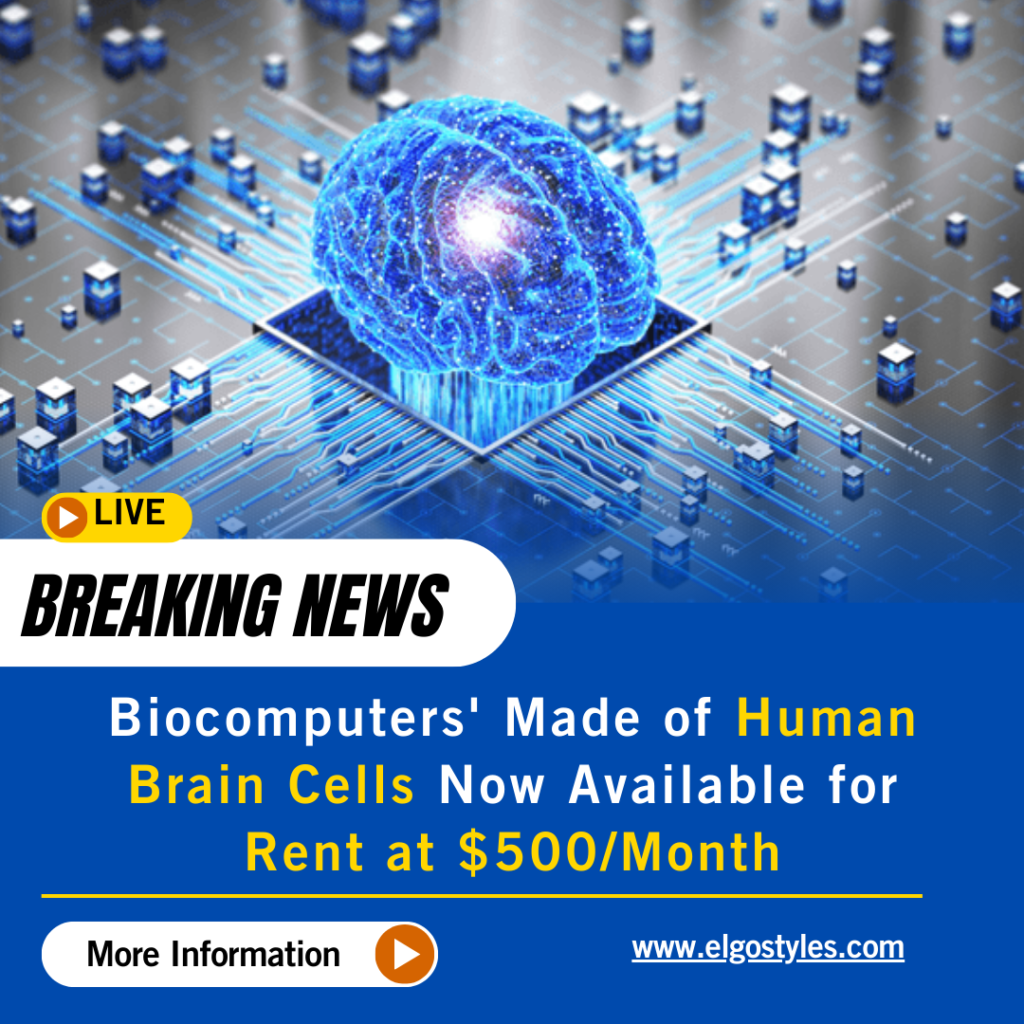Biocomputers’ Made of Human Brain Cells Now Available for Rent at $500/Month
Priced at $500 per month, these organoids can last up to 100 days and are currently being used by select universities to advance AI research and explore new training methods.
In a groundbreaking development, FinalSpark, a Swiss technology firm, has introduced a rental service for biocomputers made from human brain cells. These advanced organoids offer researchers and developers a low-energy alternative to traditional AI models, costing just $500 per month. While the organoids have a lifespan of up to 100 days, they present a novel method for AI training that mimics human brain functionality.

Training AI with Living Brain Cells
Training these organoids involves a complex process where positive dopamine rewards and negative electrical stimulation are used to form new neural pathways, similar to a living human brain. This unique approach could lead to more human-like cognitive abilities in AI models, offering a sustainable and efficient alternative to energy-intensive GPU-powered systems.
“The challenge is to find the appropriate way to get neurons to do what we want them to do,” said Fred Jordan, co-founder of FinalSpark. “Our goal is to create AI systems that learn as efficiently as the human brain, using a fraction of the energy required by conventional methods. This technology could redefine the future of computing.”
Limited Access for Top Universities
FinalSpark has granted access to its biocomputers to a select group of universities, with only 9 out of 34 applicants receiving approval. Among the institutions are the University of Michigan, the Free University of Berlin, and Lancaster University in Germany. These universities are expected to conduct cutting-edge research on the electrical and chemical prompts that could further enhance organoid activity and their integration into AI systems.
A New Era in AI Development
This innovation comes after FinalSpark’s successful launch of Neuroplatform, the world’s first bioprocessing platform utilizing human brain organoids. The platform has garnered attention for its potential to revolutionize AI by offering a sustainable, human-like computing system.
As research continues, the possibilities for biocomputers appear vast, but challenges remain, including ethical concerns and the need for standardized manufacturing processes. Nonetheless, FinalSpark’s biocomputers represent a significant step towards the future of AI.
 Electrical Engineering World Wiring a Brighter Tomorrow!
Electrical Engineering World Wiring a Brighter Tomorrow!



